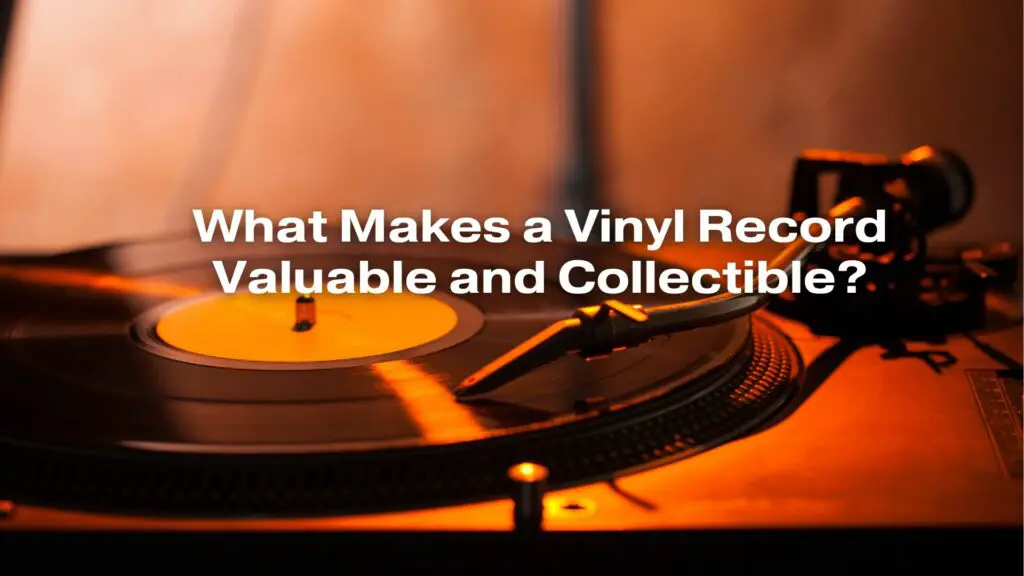Vinyl records have become more than just a medium for music; they are also highly sought-after collectible items. The value of a vinyl record can vary significantly based on a combination of factors that make it a desirable collectible. In this article, we’ll explore what makes a vinyl record valuable and collectible.
1. Rarity:
One of the most critical factors determining the value of a vinyl record is its rarity. Limited pressings, especially those with low production numbers, tend to be more valuable. Records that were only released in specific regions or for promotional purposes can also be rare and highly sought after.
2. Historical Significance:
Records that hold historical significance within the music industry or popular culture can be quite valuable. For example, records associated with groundbreaking artists, iconic performances, or specific cultural movements often fetch higher prices.
3. First Pressings:
First pressings of albums, particularly those that are in excellent condition, are highly prized by collectors. These initial pressings are often seen as the most authentic and historically significant versions of the album.
4. Condition:
The condition of the vinyl record itself plays a significant role in its collectibility. Records in mint or near-mint condition, with minimal surface wear, scratches, or imperfections, command higher prices. The condition of the album cover and any inserts or lyric sheets is also important.
5. Unique Features:
Records with unique features or attributes can be more valuable. This might include colored vinyl, special edition packaging, alternative album covers, or records with misprints or errors.
6. Autographs:
Records that have been autographed by the artist or band can carry a significant premium, especially if the autograph is authenticated.
7. Genre and Artist:
The popularity and influence of the artist and the appeal of the music genre are factors that contribute to a record’s collectibility. Iconic albums and influential artists often fetch higher prices.
8. Vinyl Quality:
Certain records were pressed on high-quality vinyl, audiophile-grade releases, or half-speed mastered editions. These are appreciated for their superior sound quality and are often more valuable.
9. Limited Editions:
Records released as limited editions, especially those that are numbered or part of a special release series, tend to be in higher demand among collectors.
10. Demand from Collectors:
Ultimately, the value of a record is influenced by the demand from collectors. If a particular record is sought after by a large and passionate community of collectors, its value can increase.
11. Pop Culture References:
Vinyl records featured in movies, TV shows, or other forms of pop culture may see a boost in demand and value, especially if the media references create renewed interest in vinyl records.
12. Age:
While age alone doesn’t necessarily make a record valuable, vintage records from the mid-20th century or earlier may be highly collectible, especially if they are in excellent condition.
It’s important to note that the value of a vinyl record can fluctuate over time based on market trends and collector preferences. Additionally, record condition, including the quality of the vinyl, cover, and inserts, is a key factor in determining a record’s worth. For serious collectors, the combination of rarity, historical significance, and condition often defines the value of a vinyl record, making it a prized addition to their collection.


